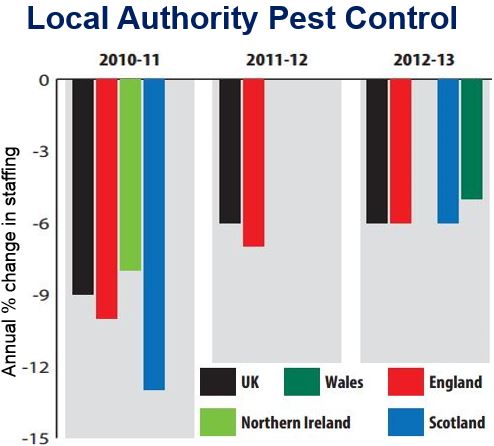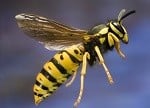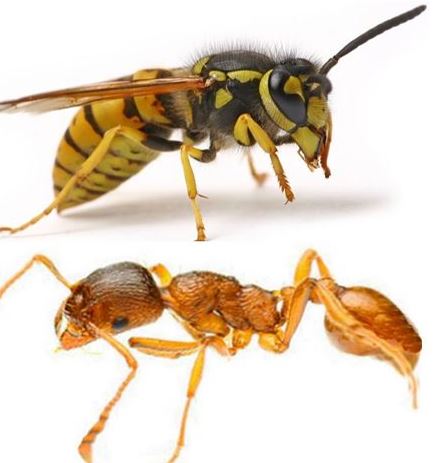A serious wasp and ant explosion is set to strike the United Kingdom this summer, entomologists (insect scientists) and pest control experts have warned. The warmer-than-average spring temperatures will lead to much higher wasp’s nest numbers.
Pest experts say government austerity measures are also partly to blame for the country’s growing problem.
In an interview with the Mirror, Tom Frost, who works at Pure Pest Management, said:
“The biggest problem will be the wasps – but the ones you really don’t want are pharaoh ants.”
A wasp and pharaoh ant. Experts have long been warning that Government cuts would lead to a serious pest problem in the UK.
Standard ant poison is not very effective with pharaoh ants. Their soldiers (worker ants) send messages to others, signalling a poison attack, which leads to the colony splitting up so that greater numbers can survive.
The pharaoh ant (Monomorium pharaonis), which originates in the tropics, is a tiny (2 mm) light brown or yellow, nearly transparent ant notorious for being a major indoor nuisance pest, especially in hospitals. It has spread to virtually every corner of the world, including Europe, the Americas, Australasia and Southeast Asia.
The Mail Online quoted Rob Simpson, of pest controllers register Basis Prompt, who said:
“The annual wasp population in the UK is very much dependent on weather conditions. Colder winters often mean there are more wasps about the following summer as mated queens spend the period deep in hibernation.”
“This year, temperatures were relatively cold during the winter and have so far been warm in spring, so we’re expecting our members to receive a deluge of calls.”
Local authority pest control services
According to the British Pest Control Association (BPCA), Government austerity measures have led to an increase in problems with pests in the UK. For example, the problems with wasps in 2014 increased by approximately 87% compared to the previous year.
A 2014 national survey carried out by the BPCA showed that Government austerity measures and local authority cuts continued to have a detrimental effect on public health pest control services.

Local authorities have been cutting pest control staffing levels every year since 2010. (Source: BPCA)
It warned that several services were under threat from future cutbacks, and that in many cases these cuts have already been felt in terms of pest control staffing and services.
Until recently, virtually all British local authorities used to provide pest control services in-house as part of their public health responsibilities. Alarmingly, nearly 20% have decided to discontinue their services due to current austerity measures and changes to local authority financial models.
Simon Forrester, CEO of the British Pest Control Association, fears the pest problem is likely to get worse.
Mr. Forrester said:
“Four years of austerity measures have left local authorities under immense pressure to come up with savings and a number of public services have been cut as a result.”
“A growing number of authorities who once provided pest control free of charge have either introduced charges or done away with their service altogether in a bid to balance the books.”
“That has already had a significant impact on the pest population because numbers are higher than ever and, if cuts continue, the problem is likely to get much worse. It’s posing a big risk to public health and we’re worried that short-term budget cuts will result in higher overall costs down the line.”
Only 501,595 pest treatments were carried out by local authorities in 2013/2014, compared to 679,110 in 2010/11.
Mr Forrester added:
“The cost of professional treatments, either through the local authority or the private sector, can be prohibitive when people are struggling to make ends meet.”
“But if residents try to deal with issues themselves, or bring in unqualified controllers because they’re cheap, infestations can quickly get out of hand.”


